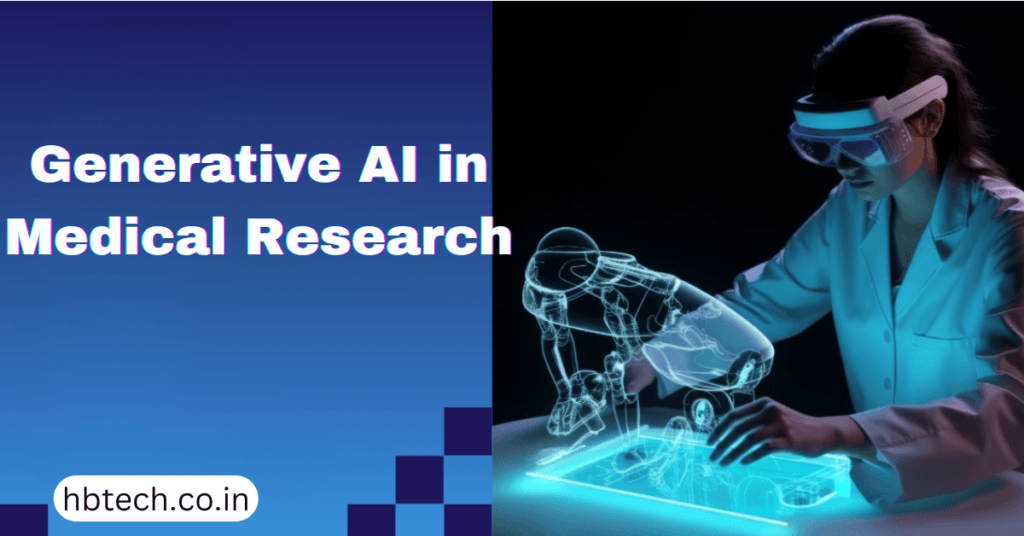Generative AI is changing the way medical research is done by offering new ways to solve complex problems. This advanced technology, which includes tools like generative adversarial networks (GANs) and transformers, helps researchers simulate biological systems, create synthetic data and speed up drug discovery. It’s making medical research more efficient and innovative.
Generative AI in Clinical Research
In clinical research, generative AI is helping to design and simulate clinical trials. By generating synthetic patient data, it reduces the need for large patient groups, which saves time and money. AI can also predict how patients might respond to treatments by analyzing genetic and molecular information. This helps develop more targeted and effective therapies.
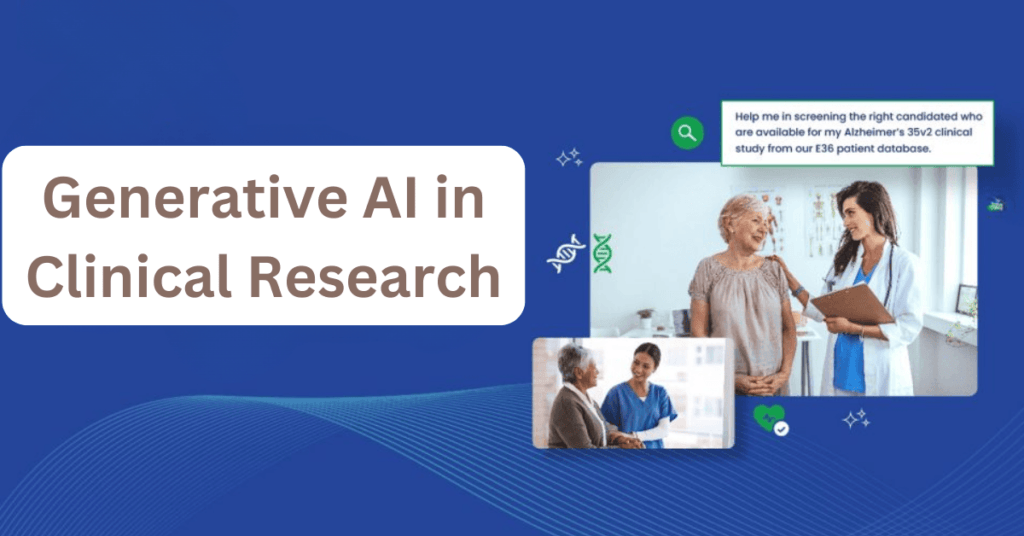
Generative AI in Biomedical Research
Biomedical research has seen major benefits from generative AI. This technology can simulate how proteins and molecules behave, predict interactions and even design new drugs from scratch. This speeds up the process of discovering new treatments, cutting down the time and resources needed compared to traditional methods.
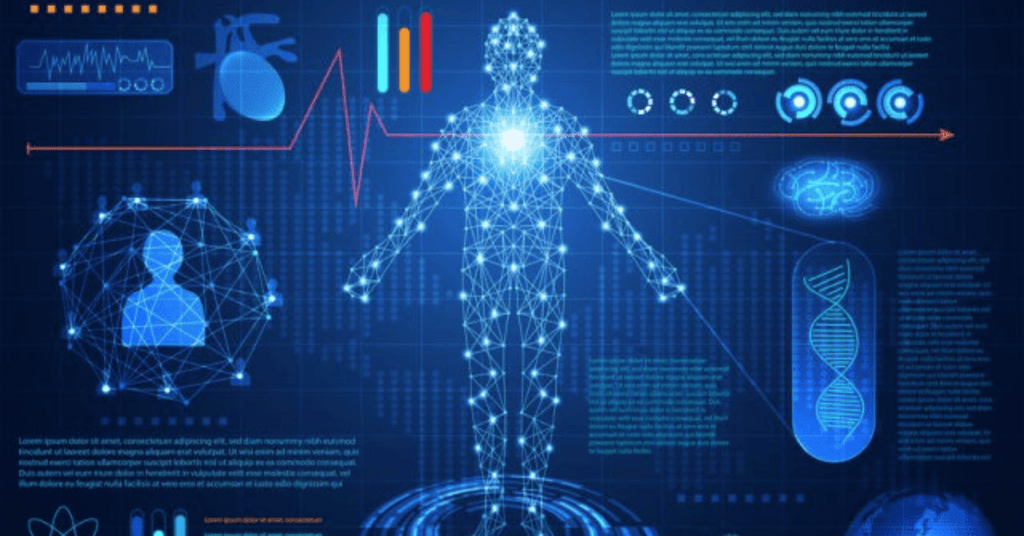
Generative AI in Medical Science
In medical science, generative AI is paving the way for personalized medicine, improved imaging techniques and advanced medical devices. AI models can analyze vast datasets to find patterns that were previously hidden. For example, in radiology, generative AI enhances medical images, making it easier for doctors to diagnose conditions accurately.
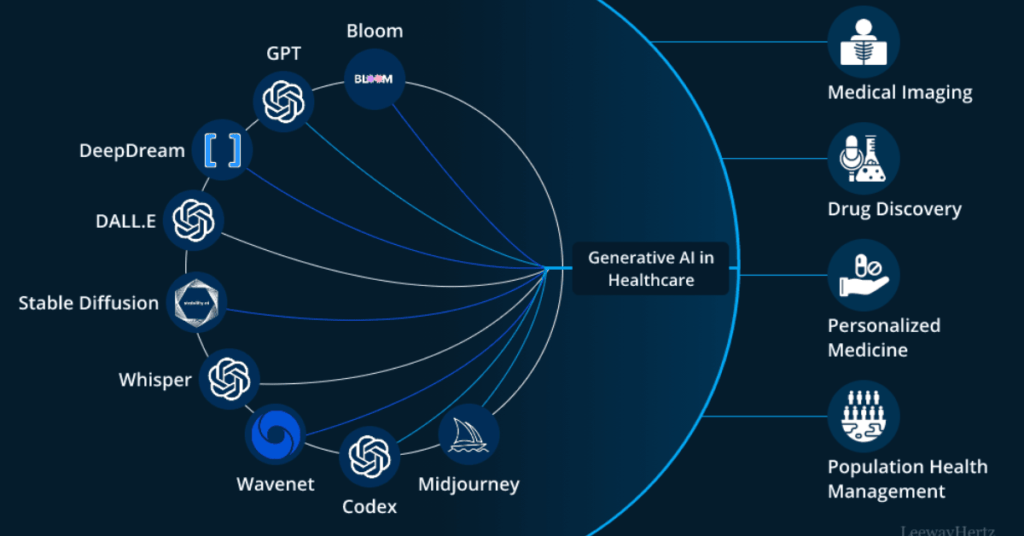
Use of Generative Artificial Intelligence in Medical Research
Generative AI is used in medical research for tasks like creating synthetic data, detecting anomalies and generating new ideas for experiments. It helps solve the problem of limited data by creating realistic datasets. It’s also used to identify new biomarkers and pathways for diseases, which can lead to new treatment options.
What Is the Primary Goal of Using Generative AI in Medical Research?
The main goal of using generative AI in medical research is to speed up discoveries and make them more accurate. By automating complex tasks and analyzing biological systems deeply, AI helps researchers develop treatments faster, improve patient care and reduce costs. It also makes advanced research tools more accessible to scientists everywhere.
Effects of AI in Healthcare
AI is having a big impact on healthcare, especially in areas like diagnostics, treatment planning and patient care. Generative AI improves medical imaging, predicts how diseases will progress and supports telemedicine services. These advancements lead to quicker interventions, better patient outcomes and lower healthcare costs.
Applications of AI in Health
AI has many uses in healthcare, including :
- Diagnostics : AI tools analyze medical images and lab results to detect diseases like cancer or heart problems.
- Treatment Planning : AI suggests personalized treatment plans based on a patient’s unique data.
- Drug Discovery : AI speeds up finding new drugs and repurposing existing ones by analyzing clinical and molecular data.
- Patient Monitoring : Wearable devices use AI to track patient health in real-time, enabling proactive care.
Application of AI in the Healthcare Industry
AI is widely used across the healthcare industry. Hospitals use predictive analytics to manage resources better, while chatbots and virtual assistants help improve patient communication. Generative AI also creates educational content for both healthcare professionals and patients, making information more accessible.
Types of AI in Medicine
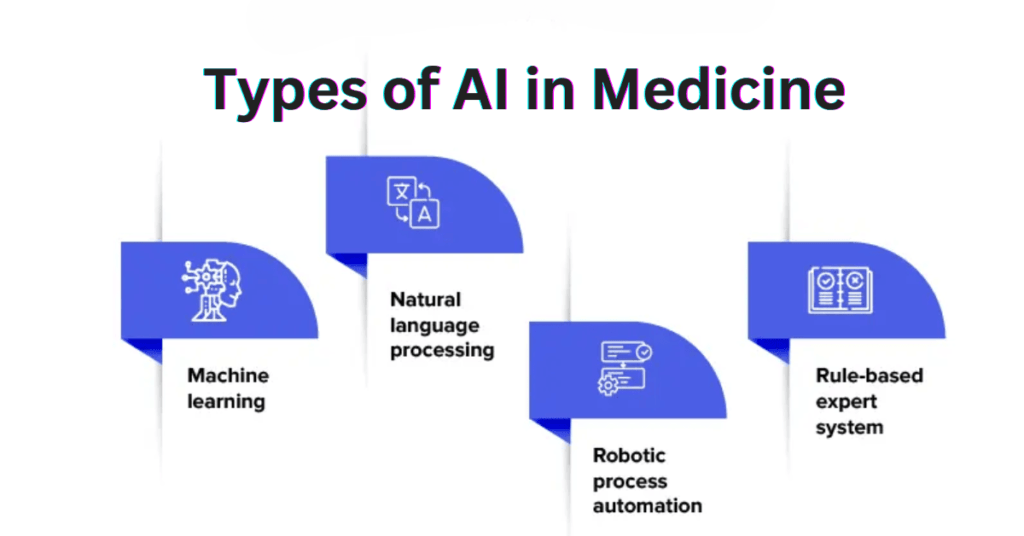
There are different types of AI used in medicine, including:
- Predictive Analytics : Tools that forecast patient outcomes and disease progression.
- Diagnostic AI : Systems that analyze lab results and medical imaging.
- Natural Language Processing (NLP) : AI that extracts insights from medical records and research papers.
- Generative AI : Algorithms that create synthetic data, model biological systems and design new drugs.
- Robotics : AI-powered robots assist in surgeries, making them more precise and reducing recovery times.
Generative AI is set to transform medical research and healthcare delivery. With continuous innovation, researchers and healthcare providers can achieve groundbreaking advancements that improve patient lives worldwide.
Frequently Asked Questions(FAQs)
How is generative AI used in clinical research?
Generative AI helps design and simulate clinical trials by creating synthetic patient data, reducing the need for large patient groups. It also predicts patient responses to treatments by analyzing genetic and molecular information, leading to more targeted and effective therapies.
What are the main benefits of generative AI in biomedical research?
Generative AI can simulate protein and molecular behaviors, predict interactions and design new drugs from scratch. These capabilities speed up the discovery of treatments while reducing time and resources compared to traditional methods.
What is the primary goal of using generative AI in medical research?
The main goal is to accelerate discoveries and make them more accurate. Generative AI automates complex tasks, provides deep insights into biological systems, and helps develop treatments faster, ultimately improving patient care and reducing costs.
What are some applications of AI in healthcare?
AI has various applications in healthcare, including diagnostics, personalized treatment planning, drug discovery and real-time patient monitoring through wearable devices. It also supports hospital management, patient engagement and educational content creation for medical professionals and patients.

